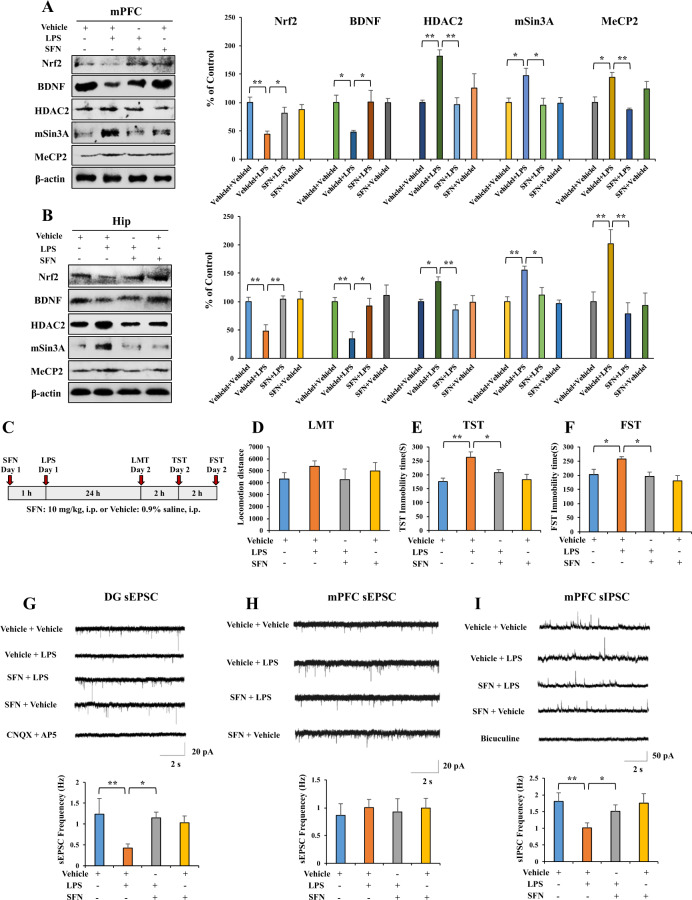Fig. 3. SFN shows beneficial effects for depression-like behavior by altering Nrf2, BDNF, HDAC2, mSin3a, MeCP2 expression, and attenuating the decrease of frequency of sEPSC and sIPSC in hippocampus and mPFC neurons.
A, B Western blot analysis for Nrf2, BDNF, and MeCP2 in mPFC and hippocampus (mean ± SEM, n = 4 per group, one-way ANOVA, *p < 0.05 and **p < 0.01). C The schedule of behavior test and treatment. D LMT: locomotion test, E TST: tail-suspension test, F FST: forced swimming test (mean ± SEM, n = 7 or 8 per group, one-way ANOVA, *p < 0.05, **p < 0.01). G Up: representative traces of sEPSC in hippocampal DG neurons. Scale bars represent 2 s, 20 pA. Down: histograms of sEPSC frequency in hippocampal DG neurons (mean ± SEM, n = 7–9 neurons of three mice per group, one-way ANOVA, *p < 0.05, **p < 0.01). H Up: representative traces of sEPSC in mPFC neurons. Scale bars represent 2 s, 20 pA. Down: histograms of sEPSC frequency in mPFC neurons (mean ± SEM, n = 8–10 neurons of three mice per group). I Up: representative traces of sIPSC in mPFC neurons. Scale bars represent 2 s, 50 pA. Down: histograms of sIPSC frequency in mPFC neurons (mean ± SEM, n = 8–10 neurons of three mice per group, one-way ANOVA, *p < 0.05, **p < 0.01).

